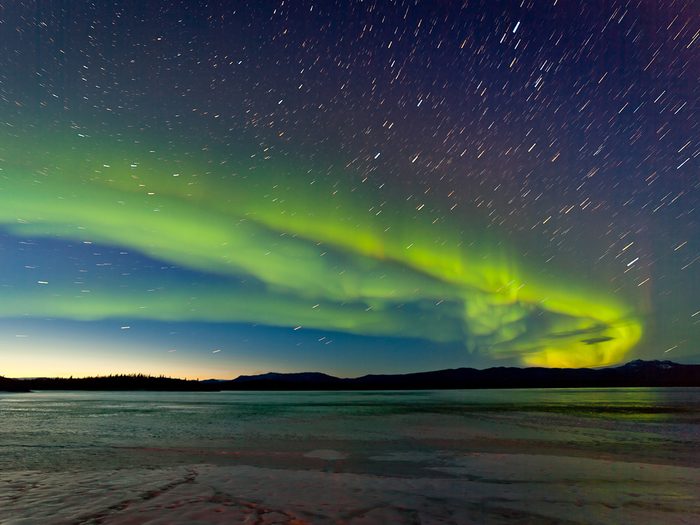
Top 10 Natural Wonders of Canada
The Northern Lights
Like an ever-changing oil painting, with broad strokes of green coalescing with splotches of gold and pulses of red, it’s impossible not to be mystified by the northern lights. These natural wonders of Canada, also known as the Aurora Borealis, are a phenomena in which electrically charged particles collide with gases in the Earth’s atmosphere causing them to glow. And they’re just as spectacular as they sound. This otherworldly light show can be seen anywhere in the aurora oval: a region centred over each magnetic pole where the lights occur with the greatest intensity. Check out the best places to see the northern lights in Canada.
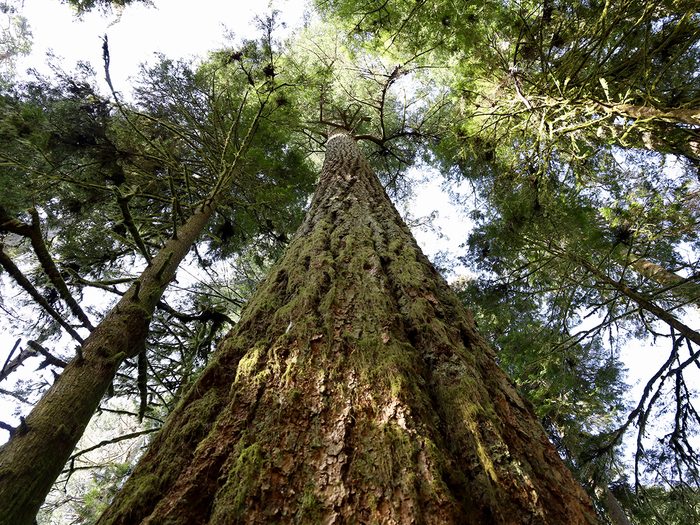
Cathedral Grove
Looking for a big cuddly tree to hug? This old growth forest on Vancouver Island might be the place for you. Just don’t expect to get your arms all the way around the trunk of an ancient Douglas fir tree. Some trees in Cathedral Grove, a cluster of the giant variety of trees in MacMillan Provincial Park, are 800 years old and measure as much as nine metres in circumference. How’s that for a cuddle partner?
Here’s where you’ll find the oldest trees in Canada.
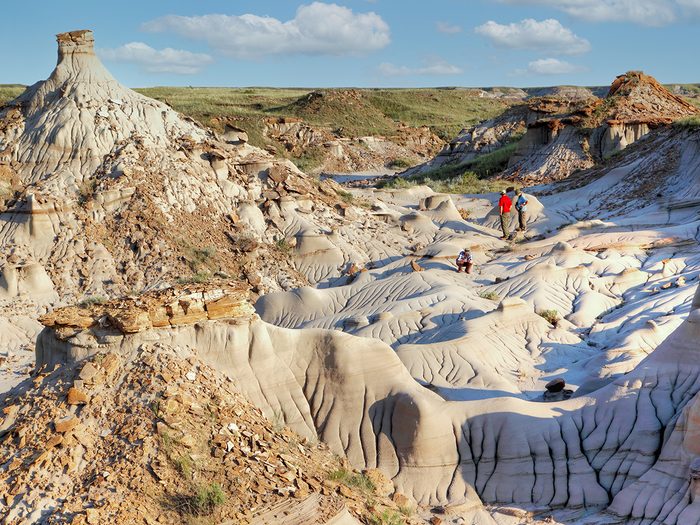
Dinosaur Provincial Park
Whether you’re a natural history buff or just a Jurassic Park fan, you’re bound to be thrilled by a walk through Alberta’s Dinosaur Provincial Park, also known as one of the world’s biggest dinosaur graveyards. Seventy-five million years ago, southern Alberta was a thriving hub of pre-historic life which included fish, amphibians, reptiles, primitive mammals and dinosaurs. When many of these animals died in river channels and mud flats, their bones were buried in layers of sand and mud and eventually fossilized. In addition to nearly 500 species of animal life, Dinosaur Provincial Park’s fossil assemblage includes an astounding 40 species of dinosaurs, not to mention more than 500 dinosaur specimens.
Check out more great places to see dinosaur fossils in Canada.
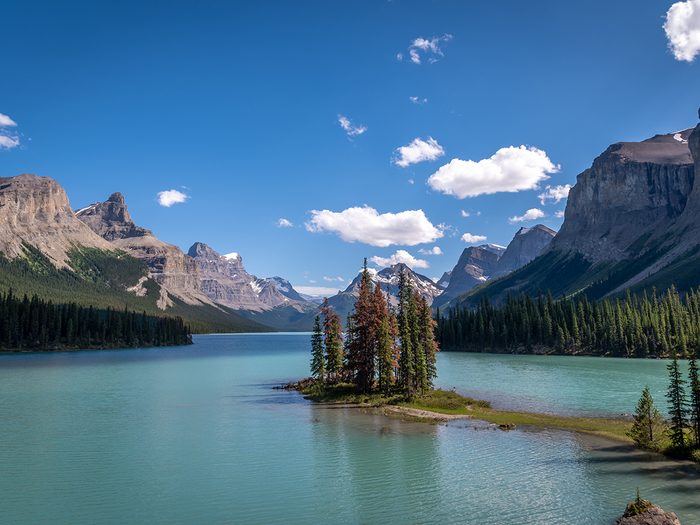
The Canadian Rockies
Turquoise water, vast expanses of unblemished wilderness, snow-capped mountains: there are few places more iconically Canadian than the Rockies. Whether you’re visiting one of its four national parks, skiing or snowboarding at world-renowned resorts or simply passing through on an unforgettable train ride, the beauty of this region is impossible to ignore. It’s no surprise most of the Canadian Rockies are designated a UNESCO World Heritage Site and draw millions of visitors every year.
Don’t miss our guide to all 20 UNESCO World Heritage Sites in Canada.
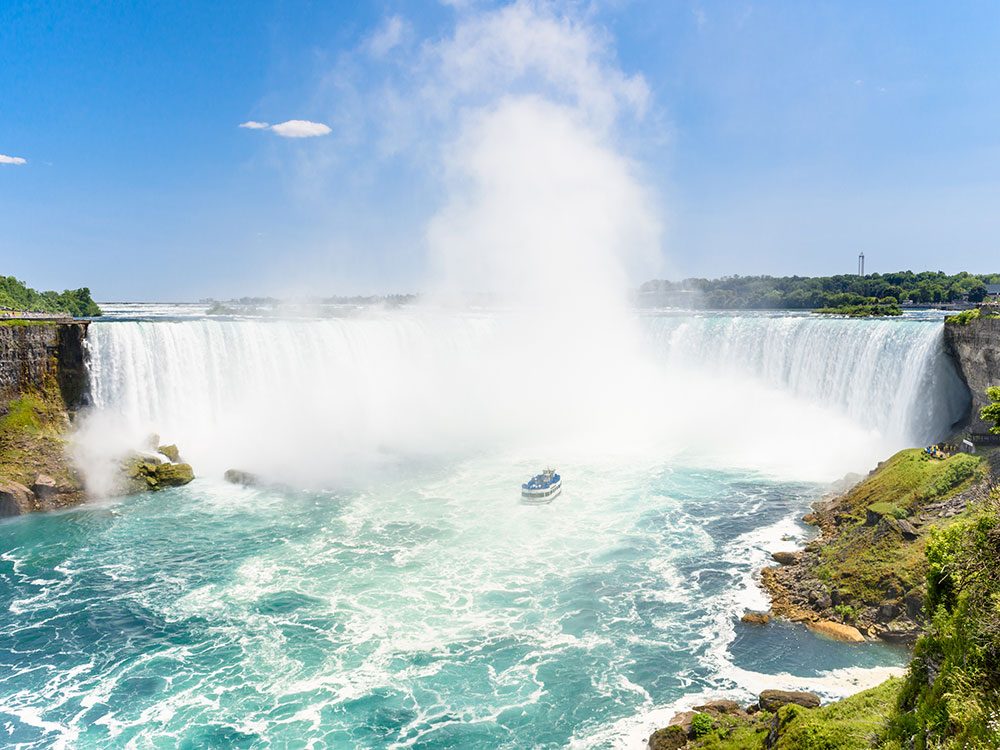
Niagara Falls
If you haven’t seen North America’s most powerful waterfall with your own eyes, it’s almost impossible to imagine it. First, picture 84-million 2-litre bottles of water. Now, imagine all that water—168,000 cubic metres—flowing over the crest of the falls every minute. Mind-boggling, isn’t it? It’s no wonder Niagara Falls, which consists of three waterfalls called the Horseshoe Falls, the American Falls and the Bridal Veil Falls, is one of the most famous natural wonders in the world. The only downside? We have to share this wonder with our neighbours to the south—one-third of Niagara falls is on the American side of the border.
Discover 10 unique things to do in Niagara Falls.
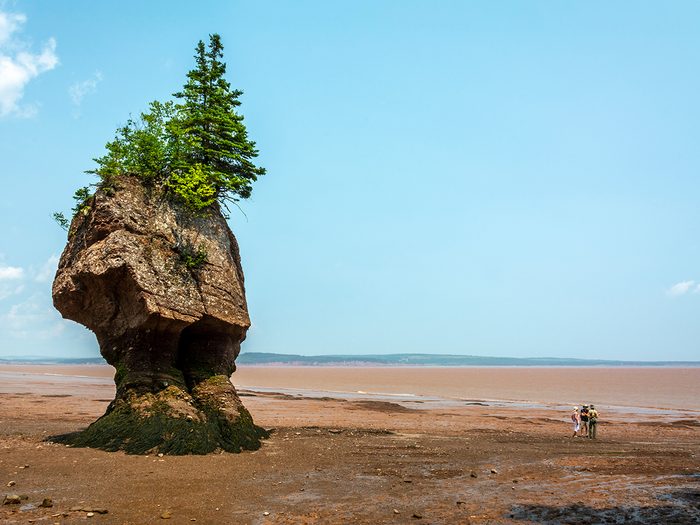
Hopewell Rocks
Not much of a swimmer? Why not explore the bottom of the ocean without the need for a scuba mask and oxygen tank? Every day, 100 billion tonnes of water empty out of the Bay of Fundy, allowing visitors the chance to walk along the ocean floor at New Brunswick’s Hopewell Rocks and admire bizarre rock formations like sculptures in a gallery. At high tide, the Atlantic’s water level rises by about 16 metres almost completely submerging everything again (save for the tips of some of the rocks), making this one of the most impressive natural wonders of Canada.
Check out more essential experiences on the east coast of Canada.
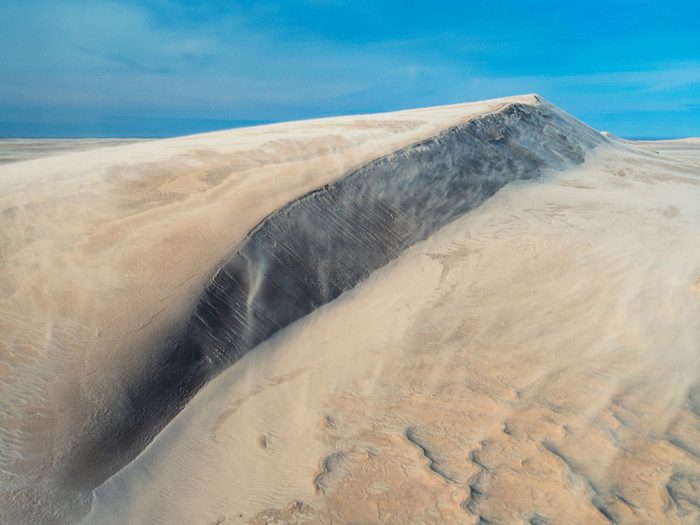
Athabasca Sand Dunes
If it feels like you’re standing on another planet at the Athabasca Sand Dunes, it’s with good reason. The towering dunes—some as high as 30 metres—are part of the largest active sand surface in the country, extending approximately 100 kilometres along the south shore of Lake Athabasca in Saskatchewan. Protected with a provincial park designation, this other-worldly ecosystem is home to rare plants, and geological features like eskers. What makes this site even more unique in our roundup of natural wonders of Canada is that it takes a bit of determination (and wilderness camping experience) to get there: The park is only accessible by float plane. For those lucky few, be prepared for a sight like no other. —Erica Ngao
Never heard of this natural wonder? Discover more mind-boggling Canadian geography facts.
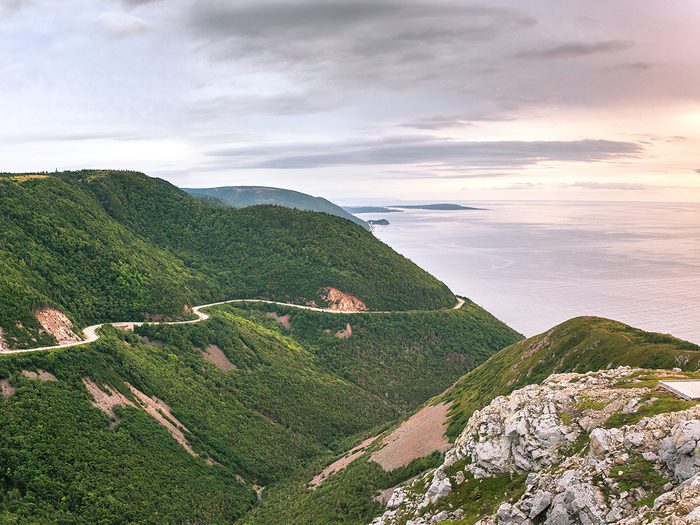
The Cabot Trail
Winding roads that hug the coastline, soaring cliffs, deep valleys, lush forests—the Cabot Trail really has it all. The best part? You don’t even have to get out of your car to enjoy it. The roadway takes drivers on a scenic loop around the northern tip of Cape Breton and through the Cape Breton Highlands National Park—298 kilometres in total. While this distance could easily be travelled in a short road trip, travellers often spend days on the winding route taking in the natural wonders and exploring hiking trails.
Here are 10 Canadian road trips you need to take at least once.
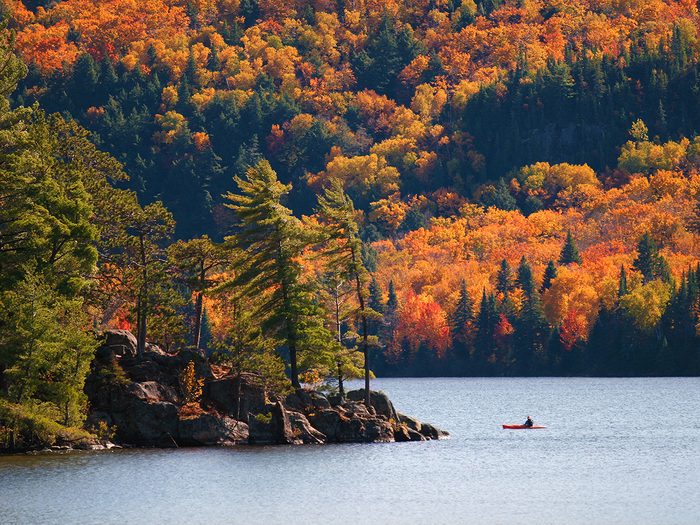
Algonquin Provincial Park
With the sun poking up over a panorama of treetops, seemingly setting the skyline on fire with broad strokes of orange, and waves gently lapping against the bow of your canoe, it’s not hard to imagine why Canada’s oldest provincial park is also one of the most inspiring natural wonders of Canada. It’s the place where the Group of Seven, Canada’s most famous painters, did most of their work. It’s also an escape for millions of campers, hikers and paddlers each year, trading the bustle of city-life for utter solitude in the pristine wilderness.
Here are 10 national parks every Canadian should visit.
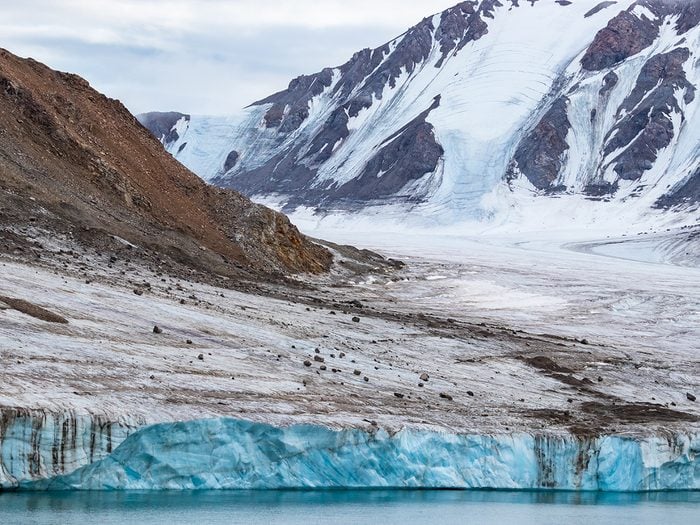
Ellesmere Island
With an average yearly temperature of about -20 C, it’s hard to imagine Ellesmere Island being anything but cold. Really, really cold. But remarkably, about 55 million years ago, this island in Canada’s high Arctic was once home to a wetland forest with palm trees, down redwoods, bald cypress and cycads, not to mention warm temperatures. The stumps of many of these trees have been preserved in a remarkable fossil forest, helping scientist study what life was like in the Arctic just before the beginning of the Ice Age.
Now that you’ve added these natural wonders of Canada to your bucket list, take a closer look at Canada’s most beautiful waterfalls.